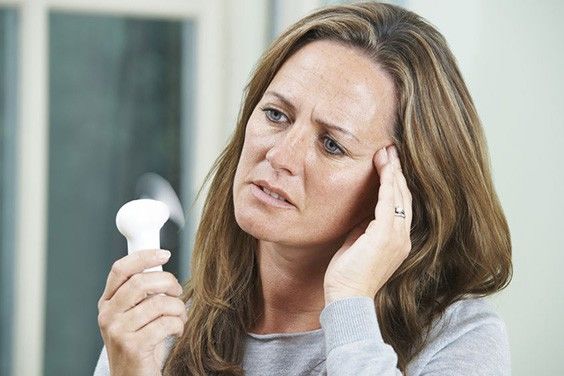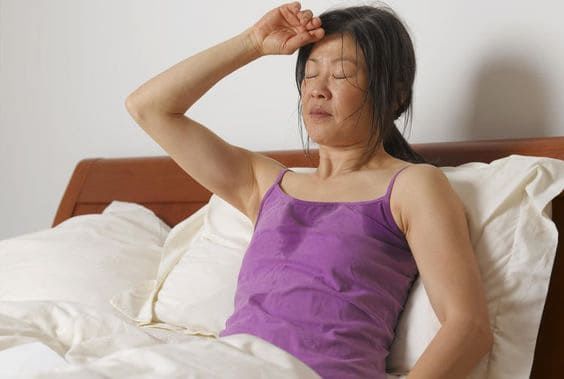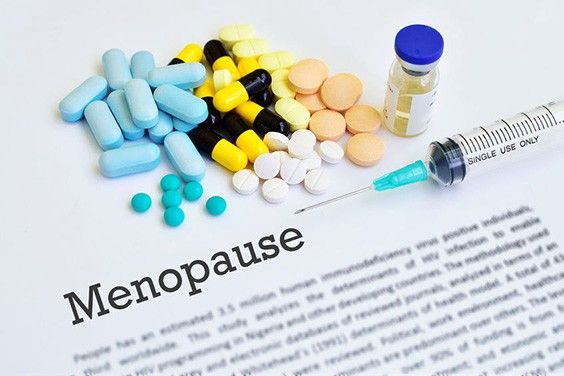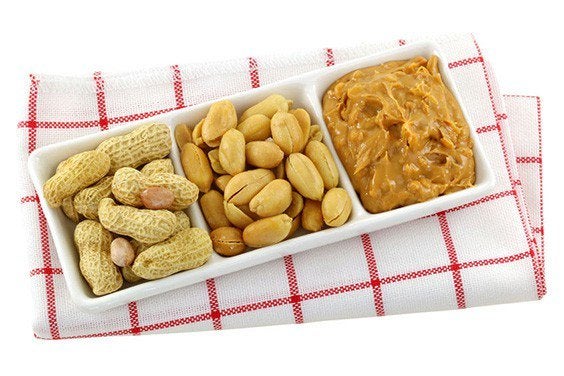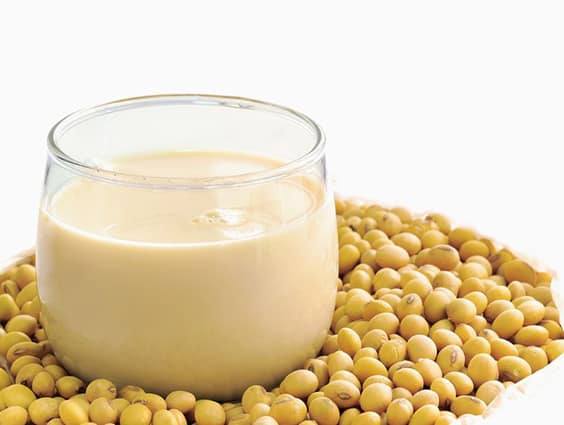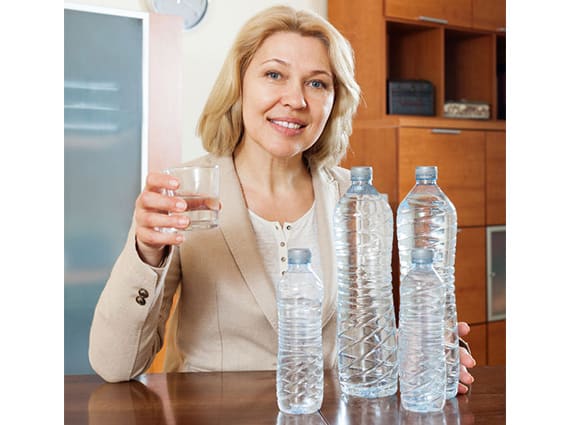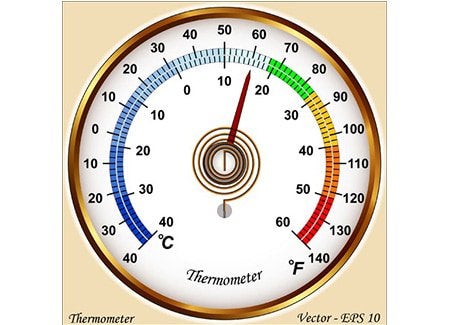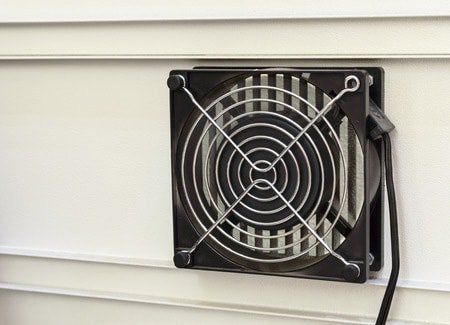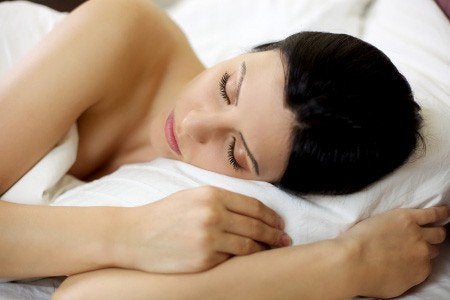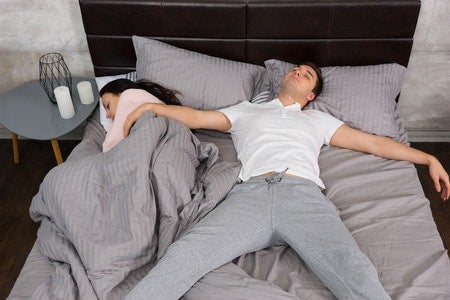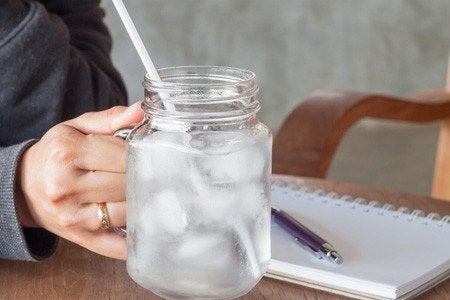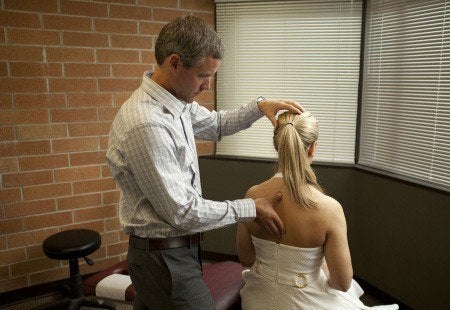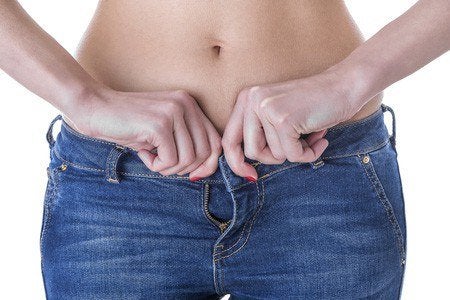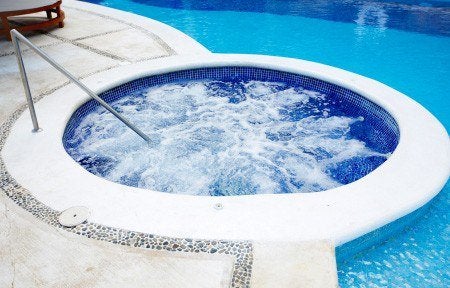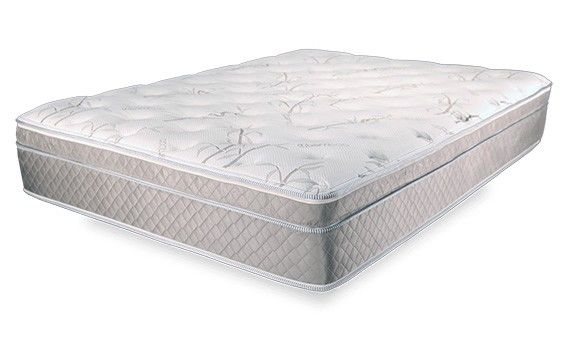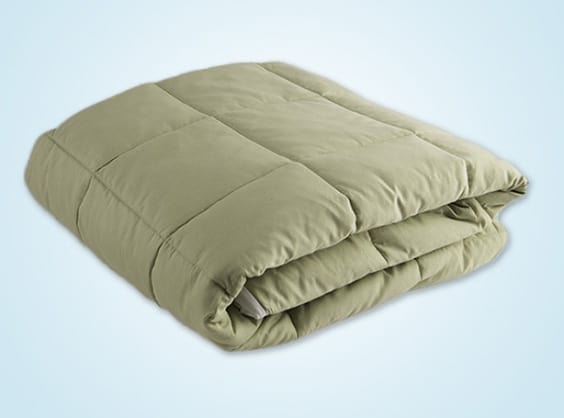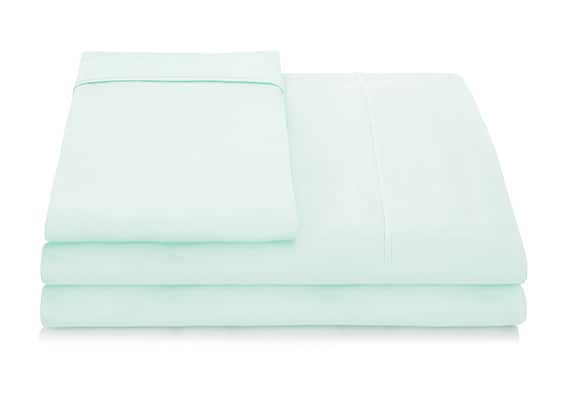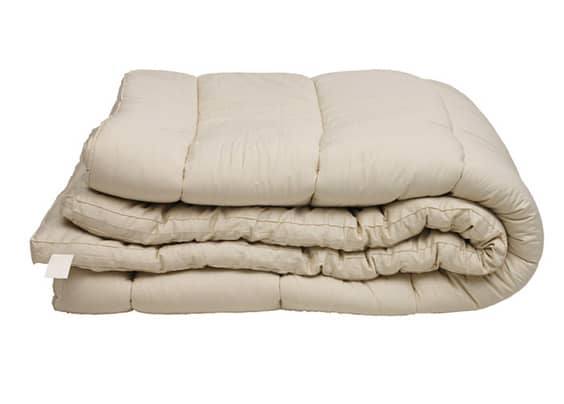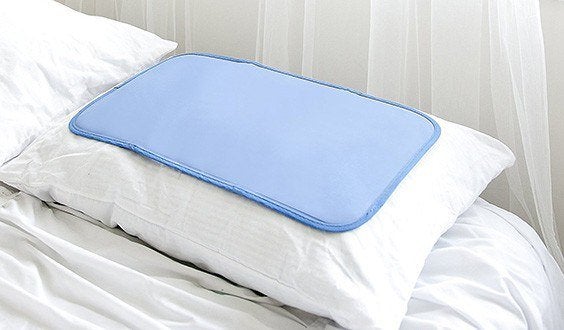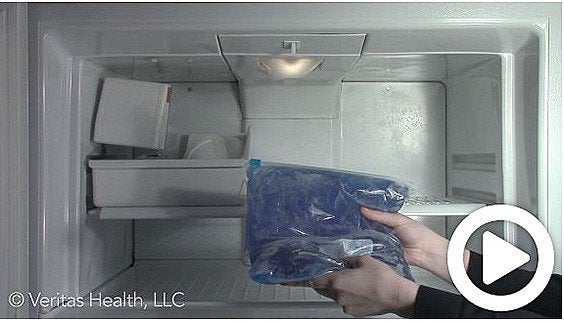If you are a woman and have been experiencing hot sweating at night and wake regularly to change clothes or even sweaty bed sheets, you may be experiencing symptoms of perimenopause: the term used to describe the time leading up to menopause. Menopause is the medical explanation used to describe the lowered production of female hormones estrogen and progesterone that lead to the complete end of ovaries producing eggs. After this takes place, women are no longer able to become pregnant naturally.
On average, women in the United States experience menopause at age 51, but it can occur during your 40’s, or even earlier and is strongly linked to genetics. Since most symptoms take place during the perimenopause stages, you may have some discomfort for a few years prior to menopause taking place. It’s important to note that not every woman experiences this the same. Some women may have few or no symptoms at all, and others may experience it for only a short time.
If dealing with your hormonal changes during day isn’t enough, this period of time may also disrupt your sleep as well. The good news is there are many things to help alleviate these symptoms so there is no need to panic about living in complete misery if you are worried you may be experiencing perimenopause. And today I’m going to help explain how to claim back your nights in order to get a good night’s rest and carry on as usual. Of course none of the following is a surefire night sweat treatment, but the information provided should provide you some relief at the very least.
What are the Symptoms of Perimenopause?
As mentioned, pre-menopausal symptoms may not be experienced the same by all women, or for the same amount of time, but many of the following will be experienced in some manner to varying degrees:
- Hot flashes
- Mood swings
- Urine leakage or urgency
- Fatigue
- Lowered sex drive
- Vaginal dryness
- Insomnia
- Irregular periods
If you are experiencing multiple symptoms, you may want to check with your doctor who can do a simple test to determine your hormone levels. Knowing if you may be entering in what many women call a ‘change in life’ will help you determine if your sleep discomfort is at all related to this transition. And if so, there are many things you can do to help get an uninterrupted night’s sleep.
What are Night Sweats?
If you are waking in the night drenched in sweat, or get up each morning with damp bed clothes or sheets, you may be experiencing night sweats. If this occurs only occasionally, or in a warm sleeping environment, then you most likely are not experiencing night sweats, but rather your bodies response in an attempt to cool itself off.
Night sweats refer to repeated episodes of extreme sweating related to an underlying medical condition or illness. If you have recently been sick or on medication, then you may be experiencing side effects to these situations. But if you are in good health, and have other possible menopausal symptoms, chances are you are experiencing night sweats.
What Causes Night Sweats During Menopause?
You may want to read: Best Temperature for Sleep
First off, we’ve all heard of hot flashes. They are a common term used by mid-life women to describe a sudden onset of heat and flushing of the skin. It’s been widely used in movies and television and often joked about, but it’s honestly not a joking matter. When a woman experiences a hot flash, their body is going through a rather complicated process that begins with a sudden estrogen level fluctuation.
When this occurs the brain becomes confused and attempts to regulate temperature through dilation of blood vessels and a triggering of sweat glands. The result is a hot skin flush, an increase in the heartbeat, and a feeling of anxiety. The difference between hot flashes and night sweats simply that one occurs while you are awake, and the other, while you sleep when it’s more difficult to recognize symptoms in order to help alleviate the possible discomfort. This may wake you and leave you feeling stressed and disoriented, and not to mention physically uncomfortable.
Night Sweats and Links to Heart Health
Women experiencing both hot flashes by day, and night sweats by night on a regular basis during pre-menopause may be at a higher risk for coronary heart disease. Over the last few years studies have shown a correlation between women who have specific body indicators with the frequency of their night sweat occurrences. These indicators include controllable factors such as increased cholesterol, increased blood pressure, and a higher body mass index.
These indicators are also direct stressors for coronary heart disease, and night sweats may be a warning sign of future health issues. The good news is that it is suggested by working with your doctors to lower these indicators you also will lower your chances of heart disease and most likely experience fewer night sweats as well.
Help Alleviate Night Sweat Symptoms
If you are experiencing night discomfort and need some relief, the good news is there are many things you can do to help alleviate, or even stop, these symptoms altogether. Everything from doctor approved hormonal therapy to eating right can help with your symptoms and let you get on with your life free from annoying, and unexpected, discomforts.
What you eat and when you eat may play a role in what you experience each night. There are definitely stimulants that you should avoid putting into your system as evening wears on to avoid a poor night’s sleep, and when you are experiencing menopausal symptoms, these can be exasperated. But there are certain foods you should lean towards to help alleviate symptoms and a diet for hot flashes and night sweats you may want to try.
Medications and Supplements
Anytime you consider taking any sort of prescription medication or over the counter supplement, you should first consult with and discuss any side effects you may experience with your doctor. Many medications can also cancel one another out, or even react with one another, so it’s crucial to take note of the importance of conferencing with a medical professional.
Hormone replacement therapy is a highly sought after choice for women with severe symptoms to help provide estrogen, and in some cases also progesterone, back into their system. There can be severe risks associate with this choice however, such as increases in breast cancer, stroke, and blood clots.
Antidepressants have also been used to specifically treat hot flashes and night sweats, and seem to be even more effective than hormone therapy in reducing, or completely getting rid of, these incidents. They do come with their own side effects as well, and working with a doctor to find your best choice of antidepressant is a must to treat specific symptoms, especially since some antidepressants can actually cause night sweats.
Talking to your doctor about Neurontin (also known as Gabapentin) if you have been experiencing severe temperature fluctuations may also provide the relief you seek. Neurontin is an anti-seizure medication that is also used to treat some migraines and nerve pain. This helps to inhibit certain neurological transfers which is what technically causes your hot flashes to begin with.
The blood pressure medication Clonidine has also had success in reducing hot flashes for both pre and postmenopausal women, although there may be side effects that outweigh the discomfort of the symptoms themselves.
Certain vitamins have also been known to reduce the effects of menopausal hot flashes and anxiety. Vitamins B and E (taken separately) both have shown in studies to help alleviate symptoms and provide a lessening of occurrences.
What to Eat
High protein foods, such as eggs, almonds, Greek yogurt, lean cuts of meat, and lentils are all examples of the types of foods you want to eat regularly as they serve as a foundation for hot flash relief. Proteins are the raw materials used to balance hormones, so it makes sense that a diet high in protein helps to alleviate menopausal symptoms.
You should be getting 20% to 35% of your daily calories from fat, but not all fats are created equal. You want to look for the healthy fats like polyunsaturated fats which are found in fish and nuts, as well as monounsaturated fats like olive oil and avocados.
Fish also have Omega-3 fatty acids that help in a multitude of ways, one being that they lower blood pressure. Omega-3’s in particular can help lower your night sweat occurrences since they are considered a part of of the hormonal-balancing family of fats due to their cell maintenance properties. It’s believed that they help aid in the reduction of inflammation, which is part of the night sweat response.
Vegetables should be part of your daily diet anyway, but if you are looking for some hormone help, pile them on any way you see fit. No matter if they are steamed, sauteed, or raw, they still have fiber power to influence digestion, healthy weight, and hormonal fluctuations.
Soy milk, or other forms of soy, have been found to be helpful in reducing night sweats. As a protein it helps regulate hormones, but it also is a huge proponent in halving your night sweat occurrences. Incorporating soy into your diet as a food, or supplement, has proven to be an effective measure to alleviate menopausal symptoms.
The average adult loses up to 10 cups of water a day, so combined with the rotation of hot flashes and night sweats it makes sense that you should hydrate regularly to help offset your water loss. It’s no surprise either that women who are more hydrated experience less symptoms of night sweats due to this.
What Foods to Avoid
Caffeine and sugar can take up to six hours to leave your system and should be avoided in the later afternoon/evening hours to avoid the changes it makes to your body. If these are still being processed when you go to bed, you not only risk disrupting your sleep, but also triggering night sweats.
Milk can occasionally be difficult for some people to digest, and if you know you have any sort of milk or dairy, intolerance you will definitely want to avoid it as it makes your body work harder to process it. This causes your body to heat up, and can possible trigger hot flashes.
Highly refined and processed foods may not digest as easily and make your body keep working to allow it to fully process through your system. This keeps your body working well after bedtime depending when you eat, and may act as a trigger to keep your body from fully resting, and being more susceptible to night sweat problems. White sugars, pasta, and bread may be problematic. Even though they might not be that bad for you, consider taking note of what you eat and when you eat in order to see if you have been experiencing any associated discomforts at night.
Alcohol, in general, can be problematic as well since it is a refined carbohydrate that acts like sugar. Alcohol is also a diuretic and can quickly dehydrate you, which as explained above hydration is important to body function. Red wine in particular can be particularly potent due to the high level of tannins it contains. Despite the many heart benefits red wine may offer, it is not something you want to consume if you are attempting to avoid night sweats.
Physically you can do quite a few things to help reduce an atmosphere more conducive to night sweats. Obviously, warmer temperatures are supportive of these occurrences, and since our body naturally cools as we sleep, helping this process alone may not only reduce your night sweat occurrences, but also aide in your sleep quality.
Turn down the temperature in your room: The ideal sleeping temperature is between 60 and 67 degrees fahrenheit. This allows your body to naturally slow down it’s processes and support a natural sleep response. Furthermore, having a cooler body temperature may help regulate your brain’s response to estrogen changes during the night.
Keep a fan on: Boxed fans and overhead fans help circulate air which as it moves against your skin will help transfer heat away. If your body does begin to warm during the night, this can help keep your body at a more consistent overall temperature and keep you from waking.
Sleep in the nude, or in breathable materials: Sleeping naked actually has many health benefits besides helping to keep you cool. But if this isn’t your thing, sleeping in cooling, breathable materials, such as cotton, or other natural fibers will help your body’s warmth to better dissipate, and also absorb any excess body moisture.
Remove sheets and blankets: Get rid of all those extra layers on your bed. It may take a few nights to find the ultimate balance concerning what you wear and cover yourself with, but blankets and sheets are made to hold in body heat to keep you warm. This means if you wake warm at night, covered by blankets, you need to get rid of those layers to allow your body heat to escape.
Sip cool, or iced, water: It’s a proven fact that drinking cooled or iced water can reduce your core body temperature and help keep it cooler for a sustainable time afterwards, even during exercise. Doing so before bed, or as you experience night sweats may help you more quickly regulate your body’s response to hormonal fluctuations.
Exercise
Your body may undergo some drastic changes during perimenopause and menopause itself, so it’s important to keep your body healthy and fit through the process to avoid more severe symptoms, and help your body handle those you do experience. Weight gain and loss of muscle mass, leading to osteoporosis through hormone level decreases, are common during these years, and regular exercise routine can help stave off the worst of these effects.
If you don’t already exercise, you ultimately want to set a goal for approximately 150 minutes of light to medium exercise a week, or 75 minutes of heavy exercise. Be realistic and set goals at first that you know you can meet, and then be sure to do so. Some suggestions to consider include:
Regular bouts of cardio such as briskly walking, running, swimming, dancing, or biking for at least 10 minutes a day helps get your heart rate going and releases feel good endorphins. Consider joining a class that meets regularly and will challenge you to learn something new.
Use strength training to build bone and muscle strength, and increase your metabolism through free weight training, resistance bands, or weight machines. All it takes are 12 reps a day to begin to reap the benefits of this.
Get moving around the house or yard. If you don’t have time to get moving out of the house, think about what you do at home that you can incorporate into a workout. Vigorously cleaning, mowing the lawn, and working in the garden has you moving, bending, and lifting to work your body out. Plug in your headphones and dance along to a beat while you do so to get your heart pumping!
Yoga stimulates core strength, improves posture, helps deepen breathing, and provides increased circulation. From all this your body begins to reap the benefits of a stronger, healthier you.
Alternative Applications
There are a lot of alternative practices you may want to consider that aides in your overall health through consistent, and proper, use. If you’ve ever wondered about the benefits of massage or acupuncture, then incorporating some of these ideas into your lifestyle could not have come at a better time. All of the below mentioned suggestions are focused on your whole health and physical being and may be beneficial in the reduction of menopausal symptoms.
Chiropractic alignment is focused upon the health of your nervous system. This is the communication system that controls everything you do from breathing to walking to making decisions. Chiropractors help relieve the stress you may experience upon the spine to better regulate messages to the brain, which in turn help regulate hormone messages.
Massage does more than helps increase blood flow and loosen tight muscles. It also increases feel good receptors in the brain to help you better cope with stress, both mental and physical. Muscle release also stimulates natural hormonal painkillers and combined with increased blood flow can help with how your brain interprets hormone fluctuations.
Acupuncture is the practice of stimulating specific points found on the body associated with nervous system receptors in the brain. In cases where menopausal women were treated using acupuncture techniques, they experienced less incidents of night sweats that persisted for up to six months or more.
Meditation is a state of practicing the calming of the mind to achieve a mental calm used to help with focus and concentration. It also involves a deeper breathing that improves blood circulation. Studies have shown that regularly practicing meditation techniques helps to reduce night sweat occurrences; most likely a side effect of the increased blood flow and body positioning that supports proper spinal alignment and nervous system health.
Triggers to Avoid
There are many things that may further physically trigger night sweats and you may want to consider applying some, or all, of the following suggestions if you have been experiencing night sweats regularly. Although much of these may help decrease or alleviate your symptoms, used in conjunction with some of the above suggestions you may drastically reduce their occurrences.
Avoid nicotine, whether you smoke or are inhaling second-hand smoke. This constricts blood vessels and compromises your blood circulation.
Avoid tight, restrictive clothing that that doesn’t allow your body to naturally breathe.
Spicy foods may act as a trigger for some women, while the immunity boost many spices provide may help in an increase of blood flow and better circulation for others. Consider your body’s typical reaction to spicy food before consumption since it can raise your body’s core temperature.
Hot drinks also raise your body’s temperature, so if you typically like to enjoy a hot cup of tea before bed, you may want to avoid it in order to allow your body temperature to better begin to cool as it readies itself for sleep.
Stress can cause all sorts of negative things to happen to our body. If you have been experiencing high levels of stress it probably is already causing problems both physically and mentally. This has a negative effect on how your body reacts to things and will interrupt natural processes, causing higher incidents of hot flashes and night sweats. Try stress-relieving techniques like meditation and deep breathing techniques. If stress has become overwhelming, consider talking with a counselor as well.
Hot showers or tubs raise your body temperature and should be avoided prior to going to bed, or altogether if you are prone to hot flash symptoms.
Best Bedding for Night Sweats
Heat retention doesn’t only occur due to the number of blankets you pile over yourself each night. What you are lying upon influences approximately half your body surface, and can cause some serious heat retention issues of it’s own.
Certain materials may be best to avoid during this time period such as soft surface memory foams due to their ability to envelope the body and reduce how well heat escapes away from your skin. Synthetic fibers that don’t breathe as well as natural cotton, bamboos, and wools either, so look for a mattress that provides breathable fiber materials.
The best mattresses to consider are those that address a cooler night’s sleep and use materials that wick moisture and heat away from your body.
If you aren’t in the market for a new mattress even if you feel you are sleeping too hot, you may want to consider which is the best cooling mattress pad currently available to help alleviate the worst of your symptoms and provide an extra buffer between you and your mattress to serve both as mattress protection from the nights you do experience uncontrolled sweating, and additional airflow.
The best types of sheets to use when you are experiencing night sweats are a cooling bed sheet made from natural fibers as mentioned above. You also may want to consider lower thread counts since high thread count sheets are woven more tightly together, making them less breathable. You may also want to shop around for cooling bedsheets made specifically for hot flashes and night sweat symptoms.
If you simply cannot go without a blanket at night, finding wool or wool blended comforters, quilts, or blankets is going to provide you with the best comfort possible. Although we relate wool to winter warmth, what you may not know is that it keeps you warm not through insulation, but due to the amazing properties that wick moisture away from your skin and absorbs it into its own fibers. This allows you to keep a thin layer of air between you and the blanket, which serves to cool you in the summer but warm you in the winter. Wool also hypoallergenic, antibacterial, and deter dust mites.
There are few best choices you can make surrounding your pillows as well to help keep you cooler. Pillow gel mats and pillows infused with cooling gels and made with breathable fibers. These are very popular choices to help keep your head and neck cooler each night. Since much of your body temperature releases through your head, providing a cooling sensation and breathable materials will better let heat dissipate much easier.
If you aren’t sure if you want to spend the money on a cooling product, then you could make your own using some simple, over the counter ingredients. These don’t work exactly the same way as the technology behind what is used in pillow and pad materials, but it may provide you enough relief to get a better night’s rest.
Bedding Care
Surprisingly enough, how you care for your bedding can help with how well it breathes. As mentioned a higher thread count is not really the best solution, even with natural fiber choices. Consider opting for lower thread counts (think 300 thread count or less), and less expensive sheets during this time to allow increased airflow. Plus, if you are experiencing night sweats you are probably changing out your sheets more often. Repeated washings will wear out your material more quickly, so it makes sense to not want to use the more expensive fiber blends.
Be sure to wash your sheets once or twice after the purchase to remove any chemicals from packaging that may inhibit breathability. Also, when washing and drying avoid fabric softeners that could bind fibers together and build up over time, creating issues with your air flow.
Conclusion
If you were unsure about what to do to combat night sweats prior to this article, hopefully, I’ve shed some light on the many ways you can address this uncomfortable issue. Keep in mind that if you have been experiencing hot flashes, but no night sweats, it only may be a matter of time since the two are both due to your body’s response to a sudden drop in estrogen levels.
Your diet, overall health, medications, and bedding choices may all have a significant impact on how often you experience these symptoms, and how severe they are. If you have had high levels of discomfort, combined with other pre-menopausal symptoms, seriously consider talking to your doctor see what options may be open to you.
Regularly adding in some of the above suggestions, such as changes in diet and exercise, and avoidance of triggers may be enough to relieve the worst of your night sweat symptoms to help you rising awake and unstressed each morning. It may take time to find what combination of tips works best for you, but by keeping a log of your habits concerning activity and foods will give you a better idea of what patterns may cause discomfort, and what helps.
